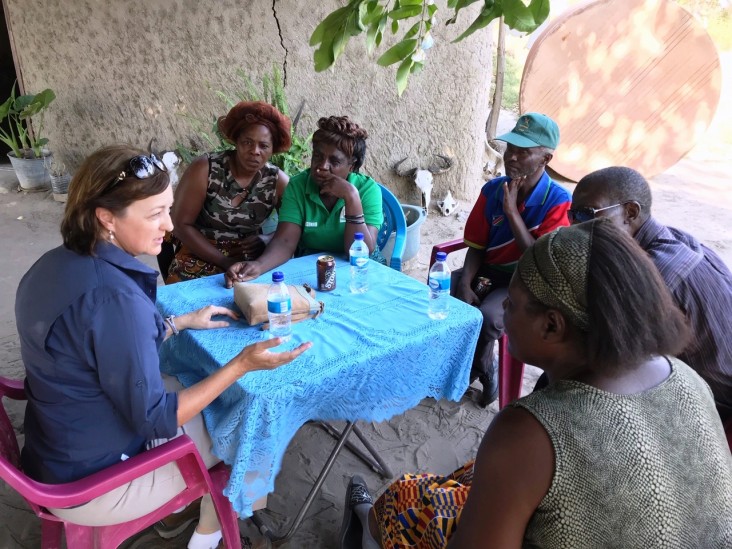Speeches Shim

As we know, wildlife crime is pushing some of the world’s most iconic species toward extinction while driving a lucrative criminal industry that fuels instability in countries around the world.
Wildlife crime is a critical threat to economic development. It undermines regional security, threatens legitimate economies, and undercuts our efforts to end extreme poverty.
In Namibia, wildlife is an important cultural and economic asset, contributing significantly to the tourism sector and sustaining the livelihoods of millions of people.
When we lose wildlife and security as a result of the illegal wildlife trade, we also lose the tools essential to fight extreme poverty.
The United States Government is committed to stopping wildlife trafficking. Through technical assistance, training, and partnerships with key actors, including communities, we are working to develop innovative, trans-disciplinary approaches to addressing wildlife crime that can be disseminated throughout the region.
Over the past year, the USG committed to investing more than $60 million over a period of five years to combat wildlife crime and promote sustainable livelihoods in the region, focusing on four priority landscapes across eight countries. These landscapes include:
- The Greater Limpopo Transfrontier Area;
- North West Namibia;
- The Malawi-Zambia Transfrontier Conservation Area; and
- The Kavango-Zambezi Transfrontier Conservation Area, which encompasses the four conservancies represented here today.
U.S. Government investments aim to support Namibia’s own efforts and balance support for enforcement with incentives to help citizens and communities become active protectors of wildlife.
In 1996, the Government of Namibia passed legislation to conserve the country’s wildlife by giving communities regulated rights for the management and sustainable use of local wildlife populations within areas known as communal conservancies.
Communities and wildlife species have benefited from this approach, which has created jobs, provided food, and diversified livelihoods.
Local ownership of conservation efforts is important to their success. Indigenous communities and local people—women, in particular—are important agents in wildlife conservation, sustainable use, improved livelihoods, and the fight against wildlife crime.
Nature conservation and the development and wellbeing of people cannot and should not be separated. We therefore recognize that we all need to work together to support sustainable communities that benefit from and live in harmony with wildlife.
As primary providers of water, food, and energy at the household and community levels, women are often highly dependent on natural resources, including wildlife, for their livelihoods.
This public speaking training provides a platform for you to build essential public speaking skills and empower you to have a voice and play a more prominent role in conservation, particularly in the fight against wildlife crime.
The training provides an opportunity to build skills that will enable you to increase participation in decision-making at the conservancy and other levels and enable you to engage more productively in economic revitalization activities.
It gives me great pleasure to acknowledge the incredible strides that Namibia’s programs on combating wildlife crime and community based natural resource management have made, illustrating that our investments and partnerships have, and still are, paying off.
I would like to thank you for inviting me to join in your training, and for your active participation in this and many other initiatives that the U.S. Government is supporting to help communities use wildlife resources sustainably and become more effective protectors of wildlife.

Comment
Make a general inquiry or suggest an improvement.